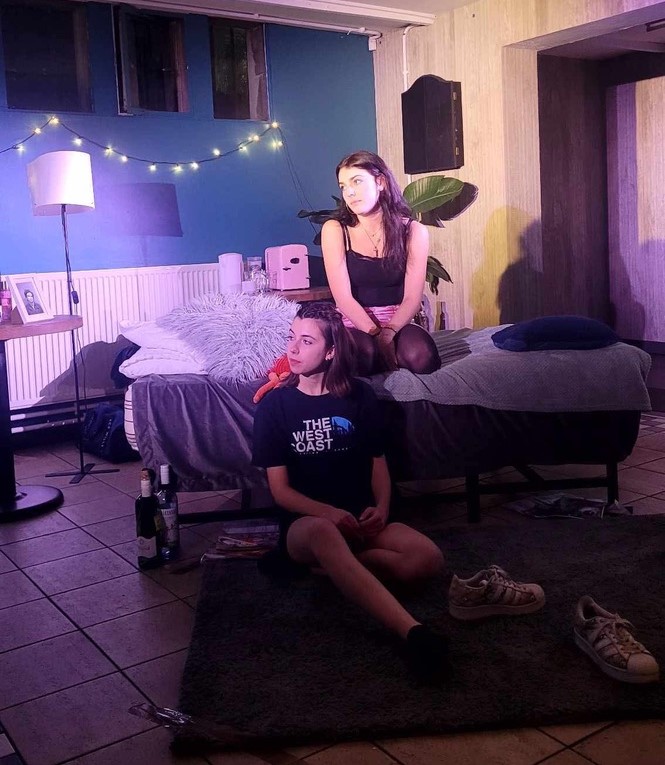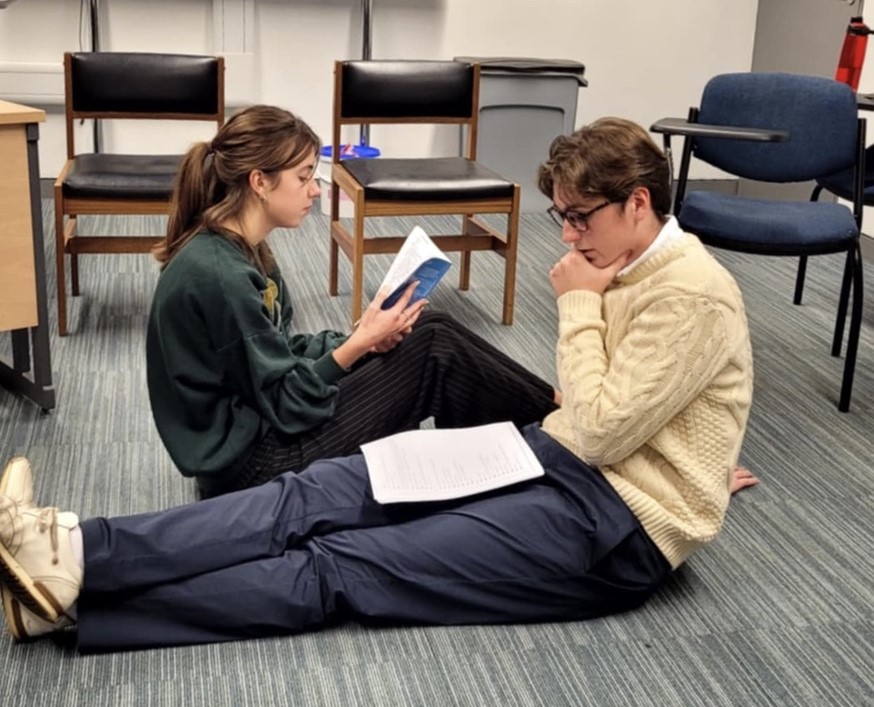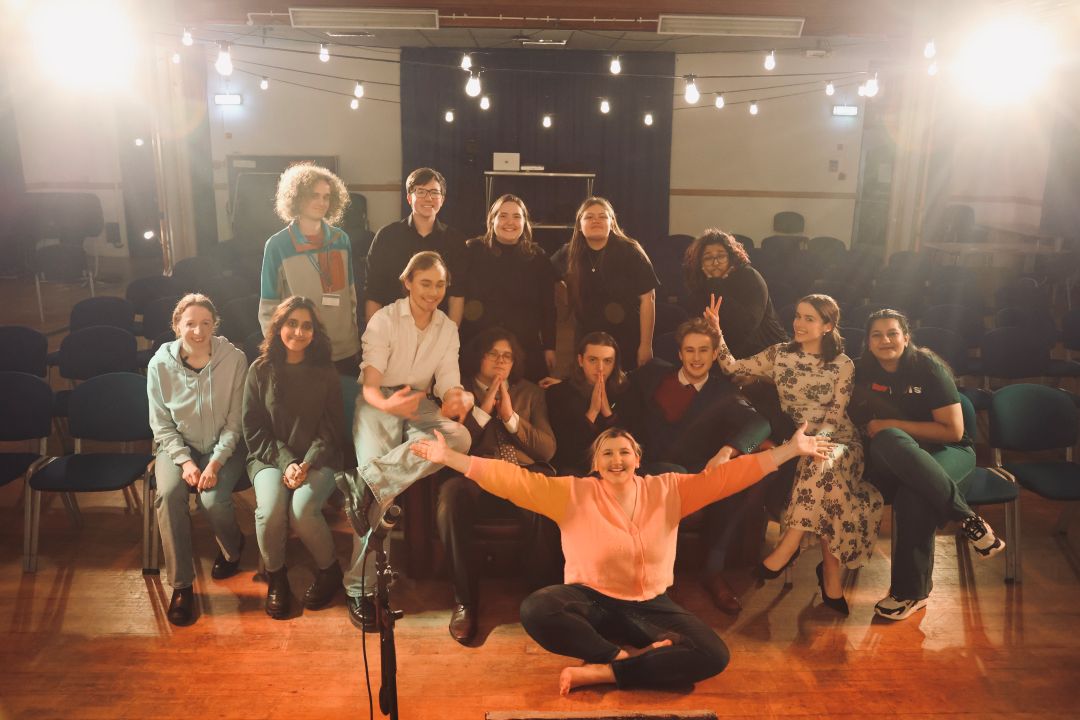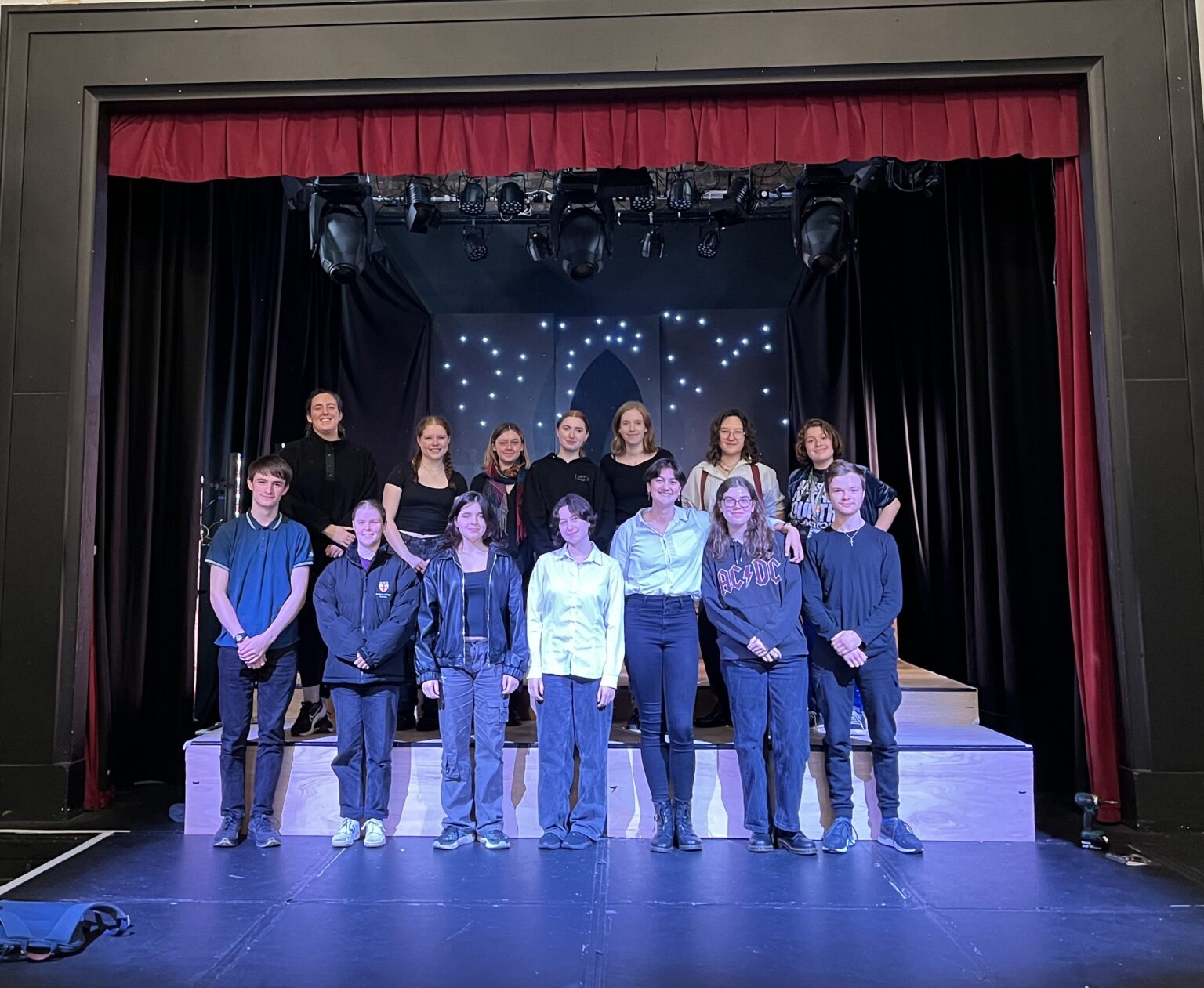Theatre has always been the medium for which we discuss and analyse certain societal topics and in more recent years a tool in which we can bring these topics to public awareness. By producing feminist theatre we are giving women a voice to do just that. For me, it is a chance to combine my passion for creating engaging shows and a commitment to bring these important conversations to light.
The opportunity to be much more
Everyone understands the importance of theatre for women – stories for women, by women, about women – but quite often these performances are focused on showing women that they are capable of everything men are, or more. There’s nothing wrong with this, it’s an important message, particularly for the younger generation. However feminist theatre has the opportunity to be something much more – we want real world experiences, thought-provoking writing, and stories we can relate to.
The productions I have been a part of in the last term (Michaelmas) are proving to be a step in that direction – How Love Is Spelt by Chloe Moss (Suffragette Theatre Company) and Sex Cells by Anna Longaretti (Fourthwall Theatre Company). As a member of both execs, I feel hugely grateful to be in the production teams for these productions and I think they blend together beautifully. Both are feminist works, focused on different genres of life and both have comedic undertones.
I think of How Love Is Spelt as the little sister to Sex Cells, with Moss’ protagonist in her 20s and Longaretti’s ranging from 30s to 60s. They discuss different issues but overlap on the topics of loss, friendship, and sex, and both have significant stories – hence why I feel a connection to them as a pair.

Sex Cells
What drew me to Sex Cells was simply its unusual story. I feel a massive part of feminist theatre is redefining the way society associates women with sexual endeavours. Sex Cells grabs this idea by the neck and makes fun of it, while also touching on important messages.
Set in a call centre, four female employees of a sex toy manufacturer take calls for Teasey Maids, Titivators and rotating pearl g-strings under the watchful eyes of their boss Mr Causeway.
Immediately I felt a need to bring this show to life and show a part of female-led theatre that is not typically done in Durham. Sex Cells engages with topics that society shies away from – sexuality, ageing, abortion and romantic connections in the workplace. By situating these issues in an atmosphere like a sex toy manufacturer, Longaretti addresses women’s sexuality without any shame and this is what I admire most about her writing.
She uses humour to explore these themes and the comedic timing of the girly-style banter helps to lighten their weight. The girls’ stories are relatable and authentic and this encourages the audience to feel an emotional connection with the play. This is what I set out to achieve with my direction of Sex Cells, and by showing the unique experiences of the girls, each with their own struggles and desires, I aimed to foster an environment that reflected the varied lives of women rather than a single story.
How Love Is Spelt
Suffragette Theatre Company is entirely focused on highlighting the work of women and takes inspiration from female playwrights. How Love Is Spelt, zeroes in on a young woman’s emotional journey and the struggle of understanding who you are outside of your relationship with others.
An unspoken struggle amongst women (and particularly younger women and girls) is trying to work out who you are, your inner life, and the confrontation of loneliness while growing up. In How Love Is Spelt, main character Peta is new to London and looking for friendship, romance and big adventures. On her journey we see how she struggles to leave behind her past and make new memories.
Peta’s imperfection is a statement to all theatre, that female stories are worth telling despite being messy and complicated. How Love Is Spelt is an inspiring piece of work and I think Moss’s writing invites questions of identity and belonging. Making a real relevance of this to anyone who has ever felt lost, and by producing this on stage is a valuable contribution to feminist theatre.
As someone passionate about women’s empowerment, I always want to be a part of productions that show the solidarity, sisterhood and strength of all women. I truly believe these productions are an impactful contribution to feminist theatre and creating a space for similar stories at Durham University.
Discover more
Learn more about Durham Student Theatre.
Follow The Durham Student on Instagram, TikTok and YouTube










